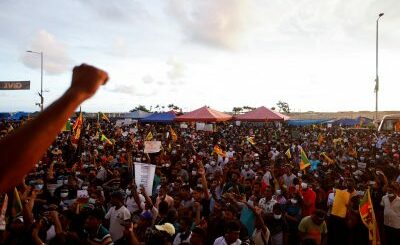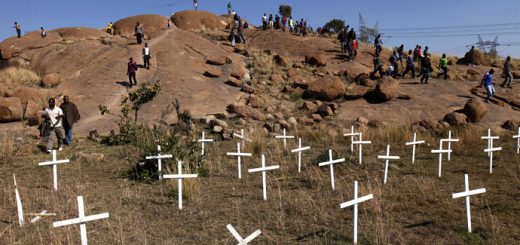Sri Lanka in doldrums
Sri Lanka is a country with 22 million population. More than 70 percent are the Sinhalese and the minority Tamils live in the Northern and Eastern part of the island. Buddhism is the major religion for the Sinhalese and they constitute around 70 percent. Christians are drawn both from the Sinhalese and Tamils and they are 6.1 percent, Muslims live in the Eastern part and they are 9.7 percent and Hindus mostly Tamils are 12.6 percent.
Sri Lanka is a country that witnessed the worst kind of civil war between 1983 to 2009. Tamils had sought asylum during the war in European countries, Australia and in Canada. There are more than a lakh Tamils living in the refugee camps of Tamil Nadu (India).
Sri Lanka Tamil diaspora is well known for its contribution to the countries given asylum to them and to their suffering brethren elsewhere. The UN Human Rights Council is still after Sri Lanka to investigate the war crimes and people who disappeared during the civil war. Sri Lanka is yet to constitute a commission to investigate on these things.
The present crisis of Sri Lanka is about the economy that is in shambles. Sri Lanka is not able to repay the loans it had taken from IMF. Sri Lanka lacked foreign currency to buy all that it needs from abroad. People are standing in long queues to get petrol and there are widespread power cuts and shortage of medicines. The debt burden of Sri Lanka is 51 billion US$ and this year it needs $7 billion to service the debts. The government is seeking $3 billion from the IMF.
Conditions that come with the loan are difficult for Sri Lanka to follow such as to increase the interest rates and taxes. The World Bank (WB) has agreed to give $600 million. India has given totally $3 billion on various kinds like 65,000 tonnes of fertilizer and 400,000 tonnes of oil and many other items.
The G7 countries also in principle agreed to help Sri Lanka to get out of the debt trap. Sri Lanka has taken the help of China to rebuild the country after the civil war in terms of developing its infrastructure and it owes $6.5 billion and both of them are negotiating the conditions for the repayment of this loan.
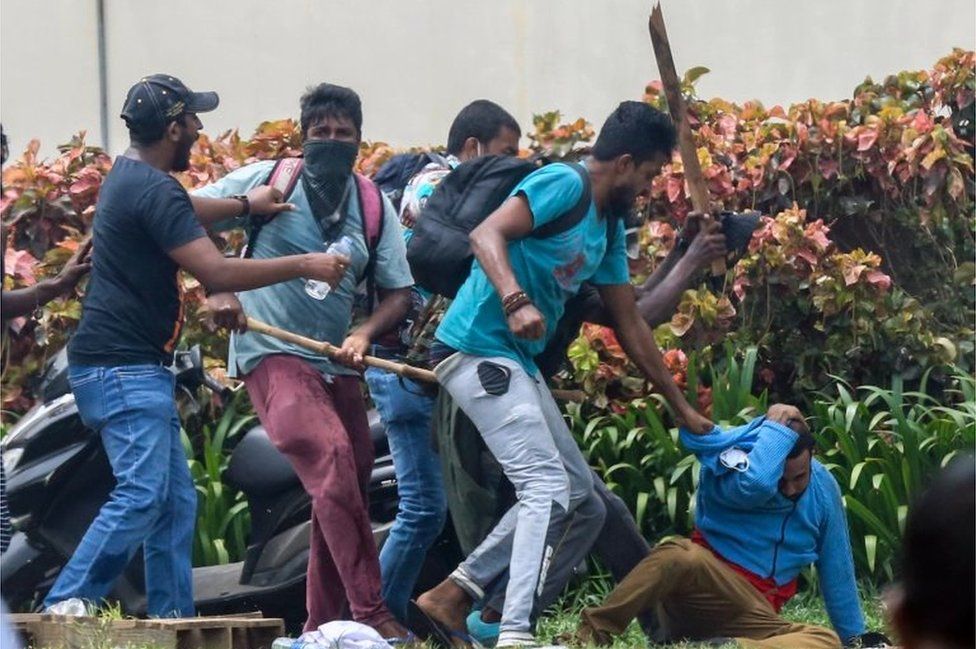
Due to protests in the country from April 2022 which was largely peaceful in the beginning, but the supporters of the Prime Minister (PM) Mahinda Rajapaksa attacked the peaceful anti-government protestors which turned violent and including a Member of the Parliament many protestors died and more than 190 injured in the capital Colombo.
When it turned violent the PM resigned on 9th May 2022 and left the official residence to an unknown destination. Sri Lanka witnessed two weeks of curfew and the president Gotabaya Rajapaksa had difficulty in forming the government as the entire cabinet resigned.
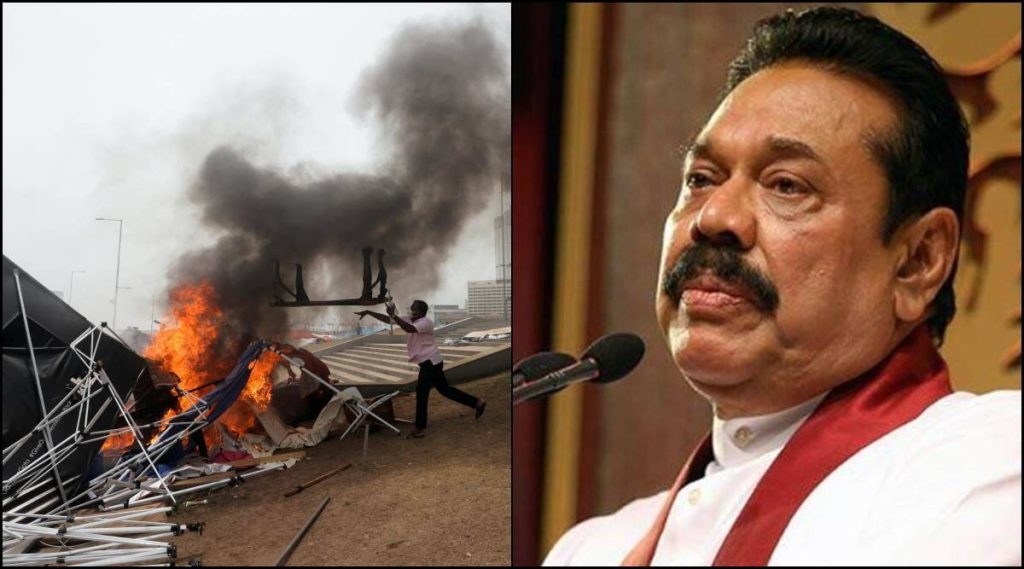
He found finally a veteran politician Ranil Wickramasinghe who was PM for five times in its history as PM for negotiating between the protestors and the IMF for a loan to pay the urgent bills and to get the imports of oil and other necessary things that the country needs badly for its citizens.
Why the country Sri Lanka is in problem?
After the civil war in which the Tamils were massacred and even now Sri Lanka is evading any investigation request from the Human Rights bodies for war crimes. Mahinda Rajapaksa completely violated the basics of the economy that the country is now facing. The Rajapaksas were defeated in 2015 and came back to power in 2020 with Gotabaya (former defence minister during the civil war period) as President and Mahinda (the former President during the civil war) as PM with almost all the powers centring on his family. One more brother and Mahinda’s son were all ministers in the cabinet. The president after coming to power announced big tax cuts for the rich and the government lost $1.4 billion in revenue.
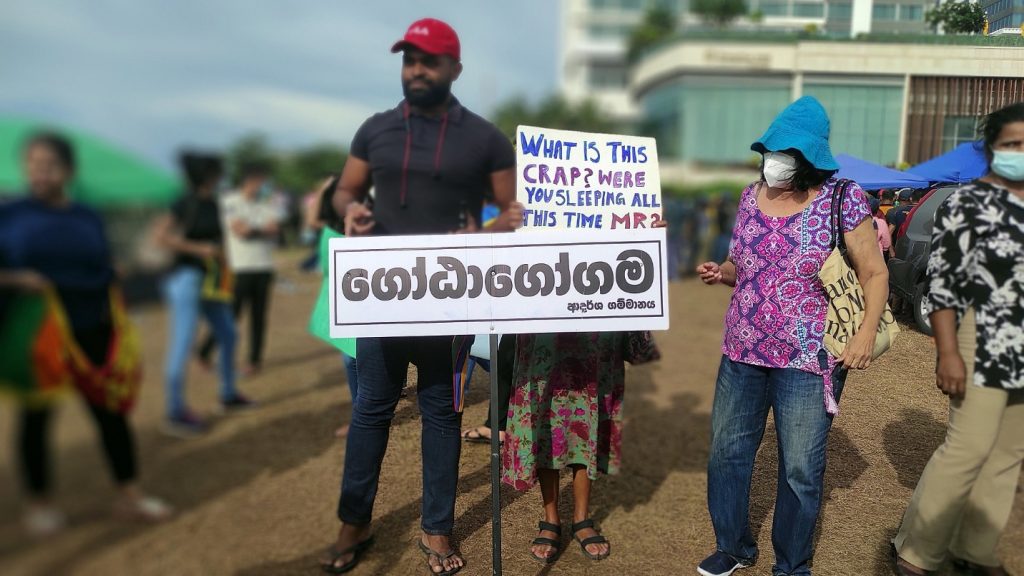
Sri Lanka is depended on Tourism and exports such as textiles, tea and others. Due to restrictions in the import of fertilizers (the government could not pay the imports in US$) the farm sector went in for bio farming (half-heartedly) and the agricultural products fell to the level that Sri Lanka needs imports of agricultural products to get out of the food insecurity. Crop failure has added to the woes to the problem of the people who were suffering from the general Covid19 restrictions and problems. Covid19 restricted the movement of people particularly it affected the tourism sector. One more reason for the tourism sector to go down was Easter Bombings (2019). Covid19 and Easter Bombings completely ruined the tourism sector.
Sri Lanka after the civil war did not go for reduction in the number of personnel in the armed forces. It has 4.5 lakhs and for an island nation in a largely peaceful situation (no immediate threats from any country for its security) to maintain a standing army of this number is a huge expenditure. If a sizable portion of the budget goes for armed forces then people suffer for necessities. There is also a general tax evasion and corruption in Sri Lanka that added to the woes of the crisis.
Sri Lanka political system is such a complicated system that the President is elected directly by people and he forms the cabinet with the party that gets majority. Impeachment of the President is a cumbersome process that it takes longer time. President has absolute powers and so the country was systematically ruined by successive politicians.
The country that was divided on ethnic and religious lines is now united against the economic policies pursued by the government that made them to come to streets to fight the injustice meted out to them for long by the Rajapaksa rule. The youth in Sri Lanka is able to see the present crisis beyond ethnic and religious lines and so there is a possibility for the political system to change and economic policies that will not push the people to streets.

Governance is the biggest casualty in Sri Lanka. The ‘pearl’ in the Indian Ocean has become a ‘tear drop’ in the Indian Ocean.
Dr. Bernard D’ Sami, Chennai (India)
Een extreem voorbeeld van nepotisme is de Rajapaksa-familie in Sri Lanka. Zie Rajapaksa family: https://en.wikipedia.org/wiki/Rajapaksa_family
Road map for Sri Lanka
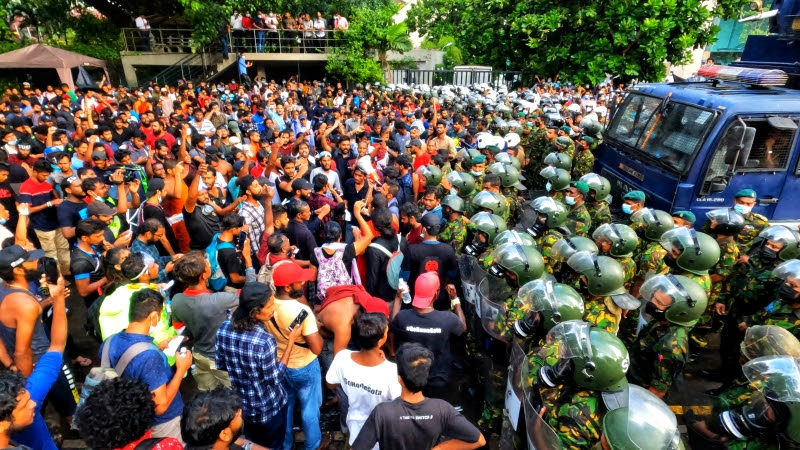
The International Trade Union Confederation (ITUC) is supporting the call of Sri Lanka’s trade unions for a broad-based interim government to be put in place until the end of this year to adopt a road-map to repair the country’s economy and to exercise full democratic rights.
Several people have been killed and hundreds injured, with government supporters violently attacking peaceful protesters in recent days.
ITUC General Secretary Sharan Burrow said: “The crisis in Sri Lanka has its roots in bad governance, with many hugely expensive white-elephant projects adding to an already high debt burden, and leading to a collapse in foreign currency reserves.”
“As a result, people are going hungry and the economy has been severely degraded. Urgent measures with international support are required to provide vital social protection, rescue the economy and enable the country to reach its real potential.”
The Sri Lankan unions’ road map emphasises the need:
- to increase the minimum wage;
- to secure adequate supplies of the most essential consumer items, including medicines;
- for measures to ensure the generation of adequate foreign currency reserves; and
- for a transparent process and public accountability of the interim government.
“The ITUC calls on the International Monetary Fund, which is discussing a package of support with Sri Lanka, to depart from failed policies of the past and include measures that support the real economy, that are compliant with International Labour Organisation (ILO) standards and that deliver social protection for all.”
“The IMF needs to consult with the trade unions and engage with the ILO and other multilateral agencies to provide support that is sustainable and favourable to economic growth.”
“Other countries are at risk of a similar plight to Sri Lanka as the impact of Vladimir Putin’s war on Ukraine creates huge gaps in the supply of grains, energy and fertilizers on top of existing inflationary pressures in the world economy. The international community, and in particular the international financial institutions, need to learn from the mistakes they have made in the past and deliver support that helps people through the real economy,” added Sharan Burrow.
The International Trade Union Confederation (ITUC) represents 200 million members of 332 affiliates in 163 countries and territories.


